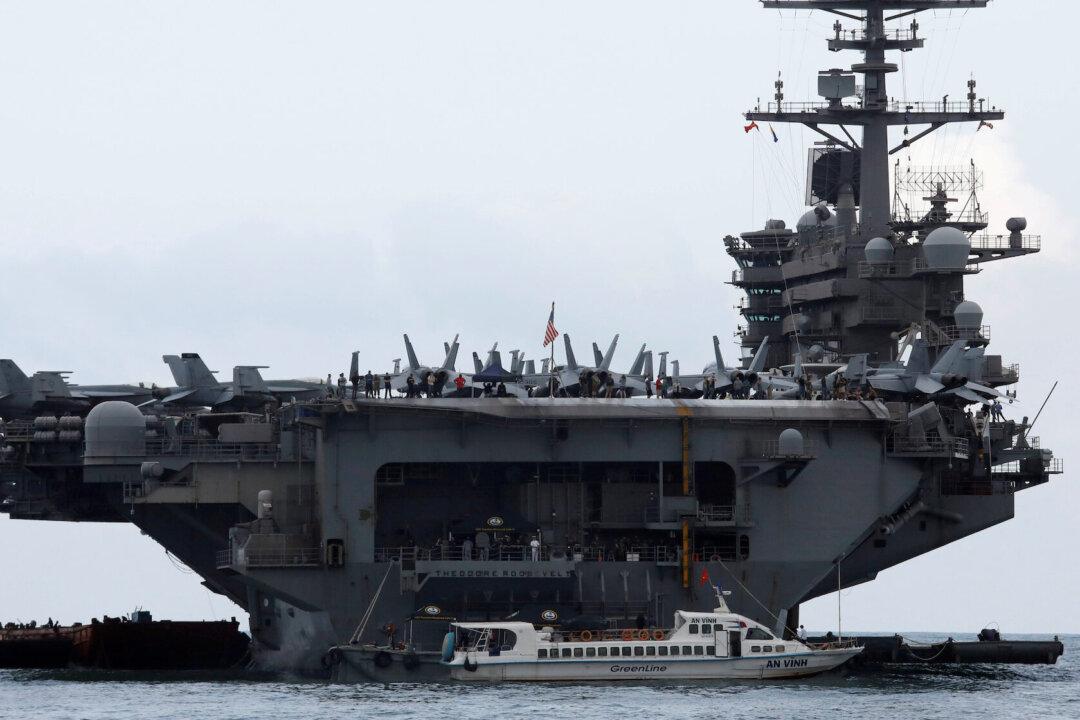The U.S. Navy announced Thursday it has relieved the commander of the U.S. aircraft carrier Theodore Roosevelt after the captain breached protocol when asking Pentagon leaders to pull crew off the ship that had reported an outbreak of the CCP (Chinese Communist Party) virus, commonly known as the novel coronavirus.
Acting U.S. Navy Secretary Thomas Modly announced the removal of Captain Brett Crozier from command of the vessel two days after the commander’s letter leaked to the media. Modly said that Crozier had exercised poor judgment.




